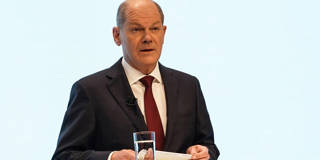
A More Daring Germany
Germany’s new ruling coalition has advanced a much-needed vision for the country, but realizing it will depend largely on its party leaders’ political skill. If the coalition fails, Germany will risk reverting to its old habit of doing too little too late – an outcome that would jeopardize its position in Europe and the world.
BERLIN – After eight weeks of negotiations, Germany has a new government. For the Social Democrat Olaf Scholz, who succeeds Angela Merkel as chancellor, the much-anticipated coalition agreement augurs nothing less than a revitalized “progressive Mitte” or progressive center – and a far bolder Germany.